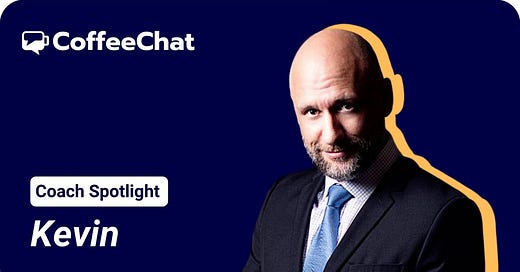✨ Coach Spotlight: Kevin
Kevin is a Leadership, Performance & Training Specialist based in Johannesburg, South Africa.
What motivated you to become a leadership coach?
When I was younger I always believed that Leadership was aimed at people with degrees or businesses and never knew that it was an actual skill. When I started with my business and I started realizing that leadership is a skill like riding a bicycle is. Anyone can learn to ride a bicycle. Leadership is a skill. It's a self-development approach to cultivating and habitually forming a unique set of strategies that allow you to grow, inspire and motivate. Leaders lead and that itself is the observation of behaviour in excellence.
What do you typically talk about with a prospective client during a free discovery session?
We usually talk about what they really really want. Who they would like to become and creating a specific outcome at the end of the day.
How does your coaching style differ between your individual vs corporate clients?
They don't differ. I work with humans and excellence in behaviour strategies. Everyone can learn and practise excellent behaviour or skill. What changes is, each person has their own specific goal. I adapt to each person and that's what differentiates me from so many.
What are some key observations you've had from interviewing coaches during your Lunchtime Coaching series?
Each Coach has their own processes. The ones who stand out are the ones who have created their own processes or own strategies. I remember one coach who specifically spoke to the "Vator Pitch" a unique approach to elevator pitches and how she uses this with her clients.
Another coach spoke about effectively creating habits with practical implementation that I had never heard about. 7 Steps to creating a habit.
Coaches who really want to make a difference in people's lives, live and breathe coaching. Some people just want to be famous.
Do you prefer video or audio calls with your coaching clients, and why?
I am all about excellence in behaviour. 93% of Non-verbal communication habits when you see someone so I don't believe that audio is the most effective approach to coaching. Not for me. Video allows me to recognise. Human facial expressions are one of the most important non-verbal ways we communicate. With 43 different muscles, our faces are capable of making more than 10,000 expressions, many of them tracing back to our primitive roots. So video is imperative but it also allows me to connect with my international clients.



